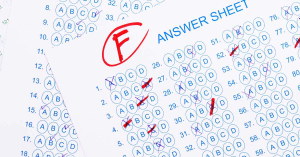Okay, parents, teachers, anyone over, say, 25, grab your metaphorical popcorn. The world of teenagers just got a whole lot more AI-powered. Remember when we were obsessed with texting? Dial-up internet? Yeah, that's cute. Gen Z has not only moved on, but they've also practically teleported into the future. Their new constant companion, their digital Swiss Army knife? ChatGPT. And it's not just for memes and viral dances (though there's plenty of that too). Teens are using ChatGPT for everything, and we mean everything. Let's explore this fascinating, sometimes alarming, world.
From Homework Hacks to Existential Crises
Forget Google. Forget Wikipedia. Forget asking your older sibling (unless they're also using ChatGPT). ChatGPT is the new go-to for teens. Need a quick fact check for that history project due tomorrow? Ask ChatGPT. Curious about the migratory patterns of the lesser-spotted wombat? ChatGPT's got you. Want to know the date of the signing of the Magna Carta? ChatGPT's your instant historian. It's like having a super-smart, always-available study buddy, minus the awkward small talk.
But hold on, it's way more than just homework help. Teens are using ChatGPT for a dizzying array of tasks. Think about it: they're navigating the treacherous waters of high school, the ever-shifting sands of friendships, the constant pressure of social media, the minefield of family dynamics, and the terrifying, gaping abyss of figuring out their future. That's a colossal amount to handle. And ChatGPT? It listens (or, well, reads or both). It's a digital confidante, a sounding board, and sometimes, even a therapist (though, again, a huge disclaimer: ChatGPT is not a substitute for professional help).
The "Humanize It" Hustle
One of the most fascinating (and slightly hilarious) things teens are doing is trying to make ChatGPT sound… well, less like a robot. Teachers are catching on to AI-generated text (and rightfully so; plagiarism is a big no-no). So, teens are getting incredibly creative. They’ll ask ChatGPT to “humanize” the text. Then they'll ask it to "humanize it again." They want it to sound less like a dusty old encyclopedia and more like, well, a relatable human being. They'll even ask it to "write like you're explaining it to a kid" or "write like you're explaining it to me, a teenager." It’s a constant game of digital tag, pushing the boundaries of what AI can do, and it’s creating a whole new level of digital literacy (whether teachers like it or not).
Beyond the Books
Here’s where things get really interesting and, sometimes, a little concerning. Teens are using ChatGPT to talk about stuff they might not feel comfortable sharing with anyone else. Boy or girl problems? ChatGPT’s got (simulated) shoulders to lean on. Worried about future career paths or whether pineapple belongs on pizza? ChatGPT can brainstorm ideas (and probably argue both sides of the pizza debate). Feeling overwhelmed by social anxiety? ChatGPT might offer some coping mechanisms (again, not a replacement for therapy). Even more surprisingly, some teens are sharing personal medical information and asking for advice (and we need to shout this from the rooftops: ChatGPT is not a medical professional and should never be used for medical advice. Period).
The Late-Night Rabbit Hole
Ever stayed up way too late scrolling through your phone, lost in the vast expanse of the internet? Teens are doing the same thing with ChatGPT. They're asking it random questions (like, "What's the meaning of life, according to a pineapple?"), exploring new ideas, and just chatting. It’s a digital campfire, a place to explore their thoughts and feelings without judgment (or at least, without human judgment). This late-night exploration might seem trivial, but it's actually a crucial part of how teens learn and grow. They’re using AI to make sense of the world around them, one bizarre question at a time.
Creative Writing
Need to write a professional email to a potential employer? ChatGPT can help with that. Struggling with writer's block on that English essay? ChatGPT can offer some brainstorming ideas (though, remember, plagiarism is a no-go). Want to craft the perfect text message to your crush? ChatGPT can even help with that (though, maybe add a little of your own personality, just saying). Teens are using ChatGPT to experiment with different writing styles, tones, and formats, honing their communication skills in the process.
Research Aid
ChatGPT isn't just a source of information; it's a research partner. Teens are using it to gather information, explore different perspectives, and even generate ideas for research projects. It's like having a super-charged research assistant capable of sifting through huge amounts of data in seconds. However, it's crucial to remember that ChatGPT is not infallible. It can sometimes hallucinate facts or present biased information. So, critical thinking skills are more important than ever.
The Future is AI
Get On Board or Get Left Behind (Seriously, This Time)!
Love it or hate it, AI is here to stay. ChatGPT is just the beginning. As AI technology continues to evolve (and it’s evolving fast), it will play an even bigger role in the lives of young people. Instead of fearing this change, we need to embrace it or at least understand it. We need to teach teens how to use AI responsibly, ethically, and effectively. We need to help them develop the critical thinking skills they’ll need to navigate a world where the lines between humans and machines are increasingly blurred. We need to prepare them for jobs that don't even exist yet. We need to prepare them for a future we can barely imagine.
Conclusion
So, what’s the takeaway for parents? Talk to your teens about ChatGPT. Don’t just lecture them about it. Ask them how they’re using it. Try to understand their perspective. Help them understand the importance of academic integrity, not just because it’s a rule, but because it’s essential for their own learning and growth. And most importantly, try to see the world through their eyes. They’re growing up in a world that’s vastly different from the one we knew. ChatGPT is a part of that world, and it’s changing the way they learn, communicate, and even think. Understanding this is key to understanding the next generation. It’s not about controlling them; it’s about guiding them through this new digital landscape. And maybe, just maybe, learning a thing or two from them along the way. Because, let's be honest, they probably know more about this stuff than we do.







